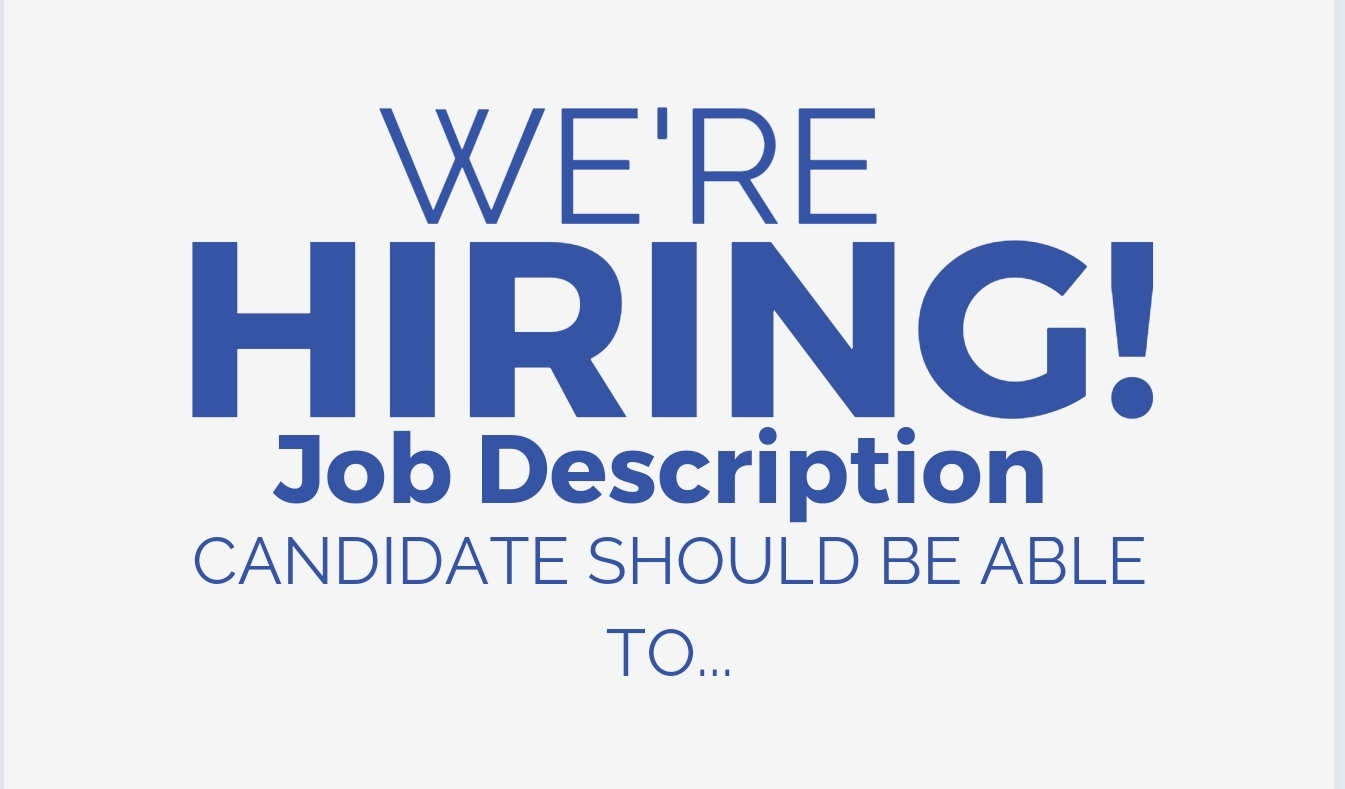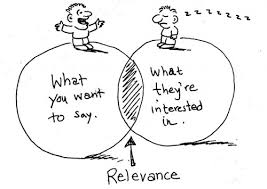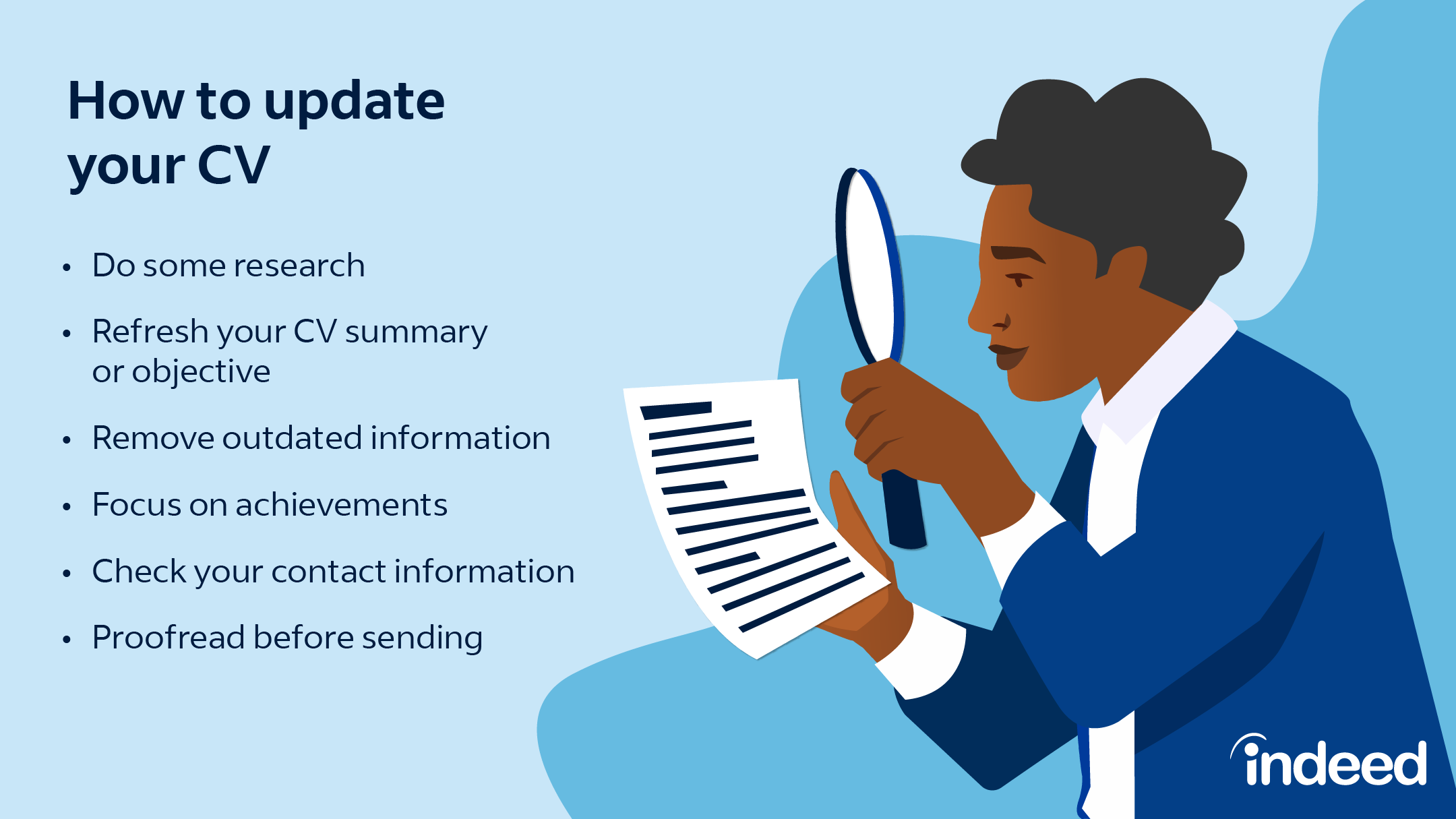The 14 Do's For Perfect CVs
The right steps for winning CVs.
Introduction
Your curriculum vitae (CV) is an essential document which aim is presenting you to a potential employer. Cvs are your first chance to make a lasting impression on potential employers, and possibly your only chance to get an interview, as it is the first glimpse they have of your personality, professional expertise and education. The importance of a perfectly curated CV cannot be overemphasised, consequently, below are some do’s of CV writing to ensure that your application stands out from the pile of applications on the recruiters’ desks.
What You Will Read:
Introduction
- Pay Attention to Job Descriptions
- Customise Your CVs
- Make Your CVs Relevant
- Quantify Your Achievements
- Use Action Voice and Verbs
- Use a Professional Format
- Include a Summary Statement
- Emphasize Transferable Skills
- Proofread Your CVs
- Use Professional Emails and Social Media Names
- Be Concise
- Be Truthful
- Update Your CVs Adequately
- Explain Gaps Between Years
Conclusion
1. Pay Attention to Job Descriptions

CV writing always starts with adapting it to job descriptions. Be keen to understand the job summary and role, required experience and skills, and the entry qualification. Include keywords mentioned in the job description for which you are applying, respect deadlines and honour designated channels and formats to receive Cvs. If it is stated that CVs are expected as .pdfs through an email please, send them as .pdfs through the provided email address.
2. Customise Your CVs

Avoid using generic Cvs. It is true that your CV is about your life, but it is only professional when you highlight aspects of your life that are relevant to the company of your aspiration. Do a company research: learn the culture of the company for which you are applying, attempting to know the person who will receive your CV when you drop it. Information gotten from the company search will help you customise your CV aptly. You may be surprised how benign aspects like colour accent will give you an advantage over other applicants.
3. Make Your CVs Relevant

Though a curriculum vitæ is a written account of one's life (it is Latin for “one’s course of life”) comprising one's education, accomplishments, work experience, publications, etc., especially one used to apply for a job, it should not be about all the facets of your life. Only state parts of your life that are relevant to the position you’re seeking. So, if you have experience in marketing, and language teaching, it is irrelevant for you to mention your teaching experience if you are applying for a salesperson position.
However, if you are applying for a trainer/team lead position in marketing, mentioning your marketing and teaching experiences will give you a competitive edge over other applicants. It is called skill transferability. So, avoid the urge of “dumping” work experience, education, trainings, seminars on your CV that do not directly relate to the sought-after job. Showcase relevant, transferable skills and experiences only.
4. Quantify Your Achievements

Whenever possible, include specific numbers, percentages, or figures to quantify your achievements. This enables employers to assess the scope of your contributions to your previous company. Instead of simply stating “I taught mathematics to students”, write this: “I taught Statistics and Mechanics to an Uppersixth class of 20 students who progressed from a 50% pass to a 70% pass”. A potential employer who reads this description can aptly quantify your contribution to your previous school.
5. Use Action Voice and Verbs
Begin each bullet point under your work experience with a strong action verb to demonstrate your active involvement and achievements. Examples of action verbs include managed, led, implemented, organized, and analyzed. Avoid the passive voice as much as possible. I personally advise starting your bullet points with the pronoun “I”.
6. Use a Professional Format
Your CV should be well-organized, visually appealing, and easy to read. Use clear headings, bullet points, and consistent formatting to depict hierarchy, balance, flow and emphasis. Effectively make use of white space, emphasize section headers, prioritise the disposition of work experience and education, and list their items anti-chronologically. This makes it easier for potential employers to scan your CV and find the information they need quickly, which in most cases are your recent experience.
7. Include a Summary Statement
In at most three relatively short sentences, summarize your professional background, skills, and achievements. This statement should showcase your key strengths/skills, your most commendable experience/achievement and your expectations/aspirations. An effective summary statement should portray what your contribution to the company will be when you’re hired.
8. Emphasize transferable skills

Even if your previous roles are not directly related to the job you're applying for, highlight your transferable skills that could be valuable to the present job. These skills could include leadership, problem-solving, teamwork, or communication. For instance, teaching requires organisational, counselling and managerial skills. As a teacher, you can transfer these skills to a therapy job.
9. Proofread Your CV

Have you ever cringed while reading a text because of the recurrent misspellings until the point of wondering how it got published? Do not make the person reading your CV feel that way too, because they may think this: if this candidate does not have the due diligence to proofread their CV, I do not think they will be meticulous on the job.
10. Use Professional Emails and Social Media Names

Naming is crucial with regards to CV writing. The right names standout in the mind of the recruiters. From naming the .docx or pdf, to choosing the name of your email address and the names of your social media handles everything has to align to the personality you want to portray. If applying online, as written above, the right names make your application stand out as it is easier to be remembered by the recruiter.
I recommend using your name, the position title and the workplace. For example, your firstname-secondname-CV-Maths-Teacher-School (Che-Neba-CV-Maths-Teacher-BHS). Avoid email addresses like nebathegreatest@gmail.com and fancy social media names. Maintain professionalism across all your social media platforms.
11. Be Concise
Keep your CV focused and concise. Limit yourself to the essential. Exclude personal details like gender, marital status, religious affiliation, age, or unrelated hobbies. Stick to professional information that highlight your qualifications for the job such as work achievement and skills. Equally, avoid long and complex sentences. The only paragraph on your CV should be your professional statement. In fact, I suggest using bullet points with a maximum of 20 words, and a one- or two-page CV as it is sufficient to showcase your qualifications and experience.
12. Be Truthful

In life, always be truthful, because truth is the only firm ground on which to build lasting interactions. Integrity is important to the job application, because lies will obviously catch up with you; they will mar your image at work and may lead to termination. Equally, do not exaggerate your descriptions as they may be considered as lies if you do not meet expectations.
13. Update Your CV Adequately

Make sure to include your recent achievements, seminars/workshops, qualifications and interests, however, these updates should be relevant to the job you have in mind. Attending a seminar on The Impact of Cybersecurity Measures in 2023 has little or no adequacy for a mechanic job, except for connected cars. Only add updates about your life if they have relevance to the job offer at hand.
14. Explain Gaps Between Years
In the event that there are gaps between the years showing on your work experience and education sections, it is good practice to explain the rather than letting the recruiter guess what you were doing during those “empty periods”. When explaining the year gaps on your Cvs, it is important to highlight the skills you acquired, if you were undergoing some sort of training, and how they have contributed to your professional value. If you were travelling or taking care of a sick family member, you may want to discuss how it has equipped you with valuable skills like Reliability, cultural awareness and adaptability.
Conclusion
By following these do's meticulously, your final Cvs will be compelling as they will effectively portray your skillset, work experience and your potential contributions to the job. Remember: the aim of every CV is to immediately show your contributions to the company if you are hired, so invest the time and effort needed to craft an exquisite CV for every job offer.
Need a job-landing CV? Click here for a chat, or scan the QR code below.

